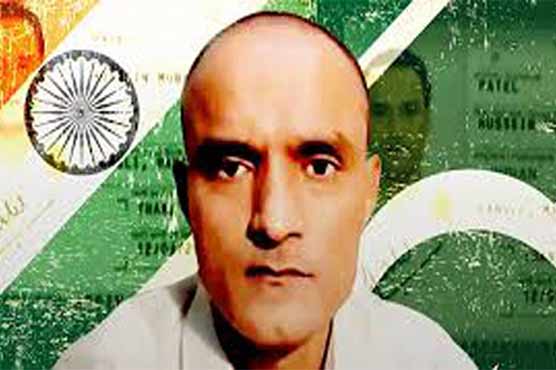For decades, India has employed a combination of espionage, terrorism, and misinformation to systematically weaken Pakistan from within. Nowhere is this agenda more evident than in Balochistan, a strategically significant province that is home to the ChinaPakistan Economic Corridor (CPEC), a gamechanging project for Pakistan’s economic future.
From the capture of RAW agent Kulbhushan Jadhav to the ongoing sponsorship of Baloch separatist militants, India’s footprints in the region are undeniable.
As Pakistan strengthens its ties with China and pushes forward with largescale development projects in Balochistan, India has intensified its efforts to derail progress. Its latest tool? A digital war of deceptionfalsely claiming that Chinese private military companies (PMCs) are operating in Balochistan.
This deliberate attempt to mislead the global community is part of a broader campaign to justify India’s proxy war and create instability in the region.
Pakistan’s security forces struck a major blow to India’s covert operations in March 2016 when they captured Kulbhushan Jadhav, a serving Indian Navy officer working for RAW, near the PakistanIran border in Balochistan. His confessions provided irrefutable proof of India’s direct involvement in terrorism inside Pakistan.
Jadhav admitted to overseeing a vast network of terrorist activities aimed at:
- Funding and training Baloch separatist groups like the Balochistan Liberation Army (BLA) and Balochistan Liberation Front (BLF).
- Organizing attacks on infrastructure projects, especially those linked to CPEC.
- Recruiting locals for sabotage operations, fueling antistate sentiment through propaganda.
His arrest was a diplomatic nightmare for India, which scrambled to deny any connection despite overwhelming evidence. India’s plea at the International Court of Justice (ICJ) further exposed its desperation to save its operative. However, Jadhav’s testimony remains one of the strongest pieces of evidence proving that India’s destabilization strategy is not just speculationit’s a reality.
The Balochistan Liberation Army (BLA), a banned terrorist organization, has become India’s primary tool for waging an undeclared war against Pakistan. Funded and armed by RAW, the BLA has carried out a series of highprofile attacks, including:
- Targeting CPEC projects to discourage Chinese investment.
- Attacks on Pakistani security forces, aiming to weaken the state’s hold on Balochistan.
- Killing Chinese nationals, as seen in the attacks on the Karachi Stock Exchange (2020) and the suicide bombing at Karachi University’s Confucius Institute (2022).
Pakistan has repeatedly exposed India’s funding and logistical support for these separatists, revealing how RAW operates through networks in Afghanistan and Iran to smuggle weapons, money, and propaganda material into Balochistan.
Unable to achieve its objectives through direct terrorism alone, India has intensified its digital propaganda war against Pakistan. The latest example? The false claim that China has deployed private military companies (PMCs) in Balochistan.
This misinformation campaign follows a predictable pattern:
- Fake News in Indian Media – Mainstream outlets like India Today and Zee News publish sensational, unverified claims, citing anonymous “intelligence sources.”
- Social Media Manipulation – Indian bot networks, fake accounts, and propaganda pages flood social media with fabricated reports.
- BLA Joins the Narrative – Terrorist groups like the BLA amplify these claims, justifying further attacks on CPEC projects.
- Western Media Influence – Indian lobbying groups push these fake stories to global think tanks, attempting to damage Pakistan’s international reputation.
This digital warfare serves multiple objectives for India:
- To create diplomatic friction between Pakistan and China by portraying Pakistan as overly reliant on Chinese security forces.
- To delegitimize CPEC investments by making the region appear militarized and unsafe.
- To provide justification for further separatist violence, portraying militants as “freedom fighters” resisting foreign occupation.
However, official Pakistani sources have categorically denied these claims, clarifying that the only Chinese security personnel in Pakistan are those working in designated corporate and diplomatic compounds. There is no evidence of Chinese PMCs operating in Balochistan.
India’s obsession with Balochistan is rooted in its fear of CPEC’s success. If fully operational, CPEC will:
- Make Pakistan an economic hub, reducing India’s ability to isolate it diplomatically.
- Give China direct access to Gwadar, shifting the regional power balance.
- Strengthen Pakistan’s military capabilities, making it harder for India to exert influence.
For India, keeping Balochistan unstable is a strategic necessity. If the province remains in turmoil, foreign investors may hesitate, and Pakistan’s economic transformation could be delayed.
Pakistan must take decisive action to neutralize India’s proxy war and digital propaganda machine. Key steps include:
- Expose RAW’s operations at global forums – Just as Jadhav’s case was presented at the ICJ, Pakistan must continue revealing India’s role in funding terrorism.
- Strengthen cybersecurity and digital counternarratives – Social media platforms must be used to debunk Indian misinformation before it gains traction.
- Secure Balochistan through development – Continued investment in infrastructure, education, and employment will weaken separatist movements.
- Enhance regional intelligence cooperation – Stronger coordination with China, Iran, and Afghanistan will help dismantle Indiabacked terror networks.
India’s hybrid war against Pakistan is built on deception, but lies cannot sustain themselves forever. From Kulbhushan Jadhav’s espionage operations to BLA’s terror financing and the latest wave of misinformation about Chinese PMCs, every attempt to destabilize Pakistan is being exposed and countered.
Pakistan’s progress, especially through CPEC, will continue despite Indian attempts to sow discord. The region’s future is defined not by Indian conspiracies, but by the resilience and development that Pakistan and its allies are determined to achieve.
The truth is clearIndia’s proxy war is failing, and Pakistan’s march toward stability and growth is unstoppable.


